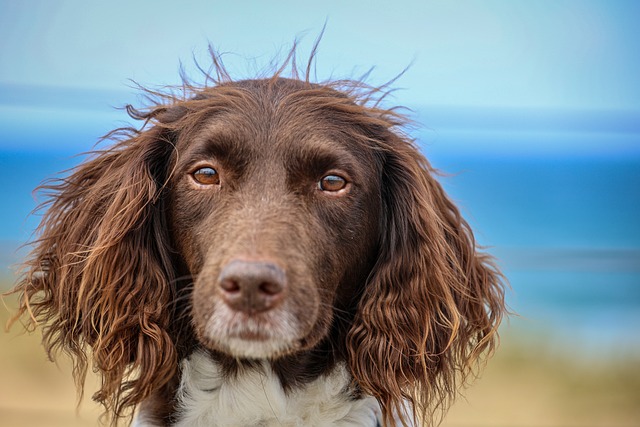
Do food toppers work for dogs
You’re standing in your kitchen, watching your dog sniff at their bowl of dry kibble with zero enthusiasm. Sound familiar?
Every jump and every run of a dog carries their love for life, and also makes us feel endless warmth and joy. However, when the annoying disease of kennel cough quietly attacks our dogs, the originally cheerful scene comes to an abrupt end. The dogs keep coughing and become listless. At this time, a question that lingers in the minds of many owners arises: Can a dog exercise when it has kennel cough?
Common pathogens of kennel cough include canine parainfluenza virus, canine adenovirus type Ⅱ, and Bordetella bronchiseptica, etc. These pathogens are very likely to spread in environments where dogs are densely populated, such as kennels and pet grooming salons. When a dog is unfortunately infected with kennel cough, the mucous membrane of its respiratory tract will be irritated by inflammation, causing a series of symptoms. The most typical one is frequent and severe coughing. This coughing sound is heart-wrenching, and sometimes it is accompanied by dry heaving, making the dog very uncomfortable. Its former liveliness and activeness are replaced by a sickly state.
From a professional medical perspective, when a dog has kennel cough, moderate exercise has a complex impact on its physical recovery. On the one hand, appropriate and gentle exercise helps to promote the dog's blood circulation, enhance the body's metabolism, and thus improve immunity, which has a positive significance for resisting the disease and accelerating physical recovery. For example, on a sunny day with a suitable temperature, the owner takes the dog with kennel cough for a short and slow-paced walk on the quiet roads in the community. Such exercise allows the dog to breathe fresh air, makes its body slightly warm, promotes the circulation of qi and blood throughout the body, provides more energy support for the immune system, and helps the dog better fight against the kennel cough virus. Moreover, the dog's mood may also be improved during the exercise, temporarily forgetting the physical discomfort. This positive psychological state also has a certain auxiliary effect on recovery.
 On the other hand, excessive or inappropriate exercise for a dog with kennel cough is like adding insult to injury. Since the dog's respiratory tract is already in an inflamed state, the airway mucosa is swollen, and the secretion is increased, breathing is more difficult than usual. If the dog engages in strenuous exercise at this time, its breathing rate will increase sharply, and the demand for oxygen will increase significantly. But the inflamed respiratory tract cannot effectively meet this demand, leading to an aggravation of the dog's breathing difficulties, and the coughing symptoms will also become more severe. For example, if a dog with kennel cough is allowed to run and chase a frisbee as usual, it is very likely to have severe coughing after the exercise, and may even be so short of breath that it cannot stand steadily and pants heavily. This will undoubtedly make the dog's condition deteriorate further and prolong the recovery time.
On the other hand, excessive or inappropriate exercise for a dog with kennel cough is like adding insult to injury. Since the dog's respiratory tract is already in an inflamed state, the airway mucosa is swollen, and the secretion is increased, breathing is more difficult than usual. If the dog engages in strenuous exercise at this time, its breathing rate will increase sharply, and the demand for oxygen will increase significantly. But the inflamed respiratory tract cannot effectively meet this demand, leading to an aggravation of the dog's breathing difficulties, and the coughing symptoms will also become more severe. For example, if a dog with kennel cough is allowed to run and chase a frisbee as usual, it is very likely to have severe coughing after the exercise, and may even be so short of breath that it cannot stand steadily and pants heavily. This will undoubtedly make the dog's condition deteriorate further and prolong the recovery time.
As dog owners, when faced with the situation of our dogs suffering from kennel cough, the anxiety and worry in our hearts are beyond words. We hope that our dogs can recover their health as soon as possible through exercise, but we are also afraid that inappropriate exercise will make them endure more pain. This contradictory mentality makes us extremely cautious when deciding whether to let our dogs exercise. We look at the dogs' eyes full of longing to go out and play, and our hearts are filled with compassion; but when we hear their coughing sounds, we can't help but hesitate. In this case, the best thing we can do is to consult a veterinarian's professional opinion in a timely manner. The veterinarian will comprehensively judge whether the dog is suitable for exercise and what degree of exercise is appropriate according to the dog's specific condition, including the severity of the cough, whether there are other symptoms such as fever, and the dog's own physical condition, such as age, breed, and past medical history.
If the veterinarian believes that the dog can have moderate exercise, we also need to be extremely careful during the implementation process. First of all, choose a suitable exercise place. Avoid places with a dense population and poor air circulation to prevent the dog from being reinfected with other pathogens and worsening its condition. Quiet corners of the park and small paths in the community with few people and vehicles are relatively ideal choices. Secondly, strictly control the exercise time and do not make it too long. At the beginning, 5 to 10 minutes of exercise each time is enough. As the dog's condition improves, gradually extend the time appropriately, but also avoid long-term exercise. During the exercise, always pay attention to the dog's condition. If the dog shows symptoms such as increased coughing, rapid breathing, and listlessness, stop the exercise immediately, let the dog rest, and contact the veterinarian in a timely manner.
Whether a dog can exercise when it has kennel cough is a question that requires careful consideration. Our love for dogs is reflected in every detail we consider for their health. By scientifically and reasonably arranging the dog's exercise, we can take solid steps on the road to helping them recover their health. When we see the dog overcoming kennel cough, regaining its former vitality, and running cheerfully in the sun again, the joy and relief in our hearts will be beyond description.

You’re standing in your kitchen, watching your dog sniff at their bowl of dry kibble with zero enthusiasm. Sound familiar?

Spotting the first signs of your dog’s pregnancy feels like discovering a secret little miracle. But it’s not always obvious—unlike humans, dogs don’t have missed periods.

Wondering how soon you can tell if your dog is pregnant?The anticipation of new furry arrivals is both exciting and nerve-wracking.

Walking into your living room to find a flurry of fur on your couch, carpets, and even your clothes can be frustrating.

Picture this cozy scene: You’re finishing your morning cereal in your Chicago apartment, and your Labrador gives you that look – head tilted, eyes begging for the leftover milk.

Keeping your puppy’s teeth sparkling isn't just about a fresh-smelling kiss—it’s crucial for preventing painful dental issues down the road.